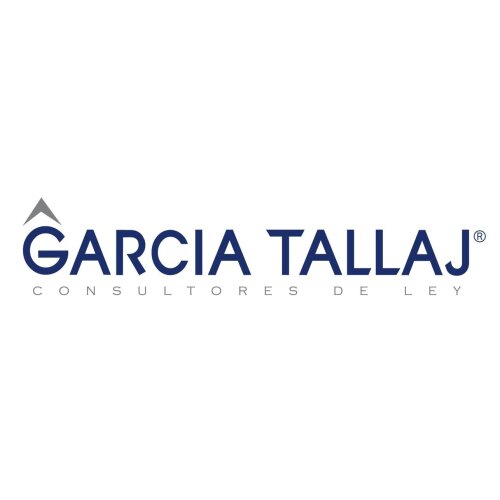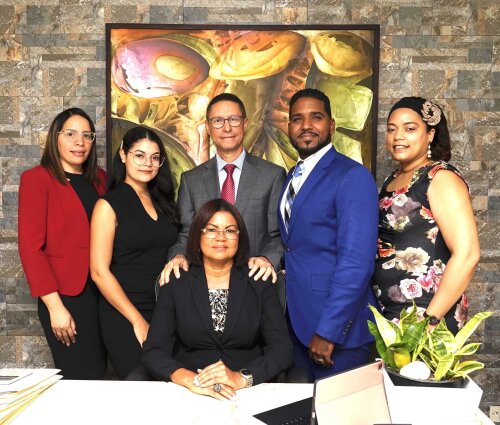Best Labor Law Lawyers in Sosua, Cabarete
Share your needs with us, get contacted by law firms.
Free. Takes 2 min.
List of the best lawyers in Sosua, Cabarete, Dominican Republic
About Labor Law in Sosua, Cabarete, Dominican Republic
Labor Law in Sosua and Cabarete, located within the Puerto Plata province of the Dominican Republic, is governed by the Dominican Labor Code (Codigo de Trabajo). This legal framework regulates the relationship between employers and employees, establishing rights, duties, benefits, and protections for both parties in the workplace. These laws ensure fair treatment, protect workers’ rights, and create standardized regulations concerning contracts, wages, holidays, termination, and dispute resolution. The labor law applies to both Dominican nationals and foreigners working or operating businesses in the region, including the robust tourism, hospitality, and construction sectors that are prominent in Sosua and Cabarete.
Why You May Need a Lawyer
Seeking the advice of a qualified labor lawyer can be crucial in certain situations. Common reasons include:
- Assistance with drafting or reviewing employment contracts to ensure legal compliance
- Resolving wrongful termination or unfair dismissal cases
- Addressing wage disputes, unpaid salaries, or overtime claims
- Guidance regarding social security, benefits, or workplace safety requirements
- Representation during labor inspections, audits, or mediation with the Ministry of Labor
- Assistance with union matters and collective bargaining
- Legal advice for foreigners starting or operating businesses with employees
- Handling cases of workplace harassment or discrimination
- Navigating legal compliance after changes to labor regulations
Local Laws Overview
The Dominican Labor Code specifies that all employment relationships must be based on written contracts, with clear definition of terms, compensation, and job responsibilities. The standard workweek is 44 hours, usually spread over six days, with mandatory rest periods and paid public holidays. Overtime is strictly regulated and requires additional pay. Employers are required to register employees with the social security system, ensuring access to health care, pensions, and occupational risk coverage. Termination of employment must follow due process, including notice periods and severance pay, depending on the type and duration of contract. The Ministry of Labor is the primary government body for enforcement, dispute resolution, and the oversight of working conditions in businesses. Both workers and employers have the right to seek mediation, arbitration, or legal remedy for violations or disagreements. In touristic areas like Sosua and Cabarete, special attention is given to the rights of foreign workers and seasonal employees.
Frequently Asked Questions
What are my basic rights as an employee in Sosua or Cabarete?
Employees are entitled to fair wages, a safe working environment, paid holidays, social security registration, and due process in case of termination. Both Dominican citizens and foreigners are protected under the same labor regulations.
Is a written contract required for all jobs?
Yes, the Dominican Labor Code requires all employment relationships to be formalized in writing, outlining job responsibilities, salary, work hours, and other relevant conditions.
How is overtime compensated?
Overtime work must be paid at a higher rate, typically at least 35 percent above the normal hourly wage. Work on weekends or public holidays may warrant even higher compensation.
What is the legal process for firing an employee?
Employers must provide justified reasons for dismissal and comply with notice periods and severance pay. Immediate termination without cause can expose the employer to penalties and compensation claims.
Are foreign workers protected by Dominican labor laws?
Yes, all labor laws apply equally to foreign workers. However, employers must ensure they are legally permitted to work and have appropriate documentation.
What are the main employer obligations regarding social security?
Employers must register employees with the social security system, deduct and contribute to pension, health insurance, and occupational risk funds, and provide proof of compliance.
How are labor disputes resolved in the Dominican Republic?
Most disputes are first addressed by the Ministry of Labor through mediation or arbitration. If unsuccessful, matters can proceed to specialized labor courts.
What are the standard working hours and days off?
The normal working week is 44 hours, usually distributed over six days. Employees are entitled to at least one day of rest per week and enjoy several paid public holidays throughout the year.
How do I claim unpaid wages or benefits?
Employees should first approach their employer. If unresolved, claims can be filed through the Ministry of Labor or with the assistance of a labor lawyer to initiate legal proceedings.
Are there special protections for certain types of employees?
Yes, pregnant women, minors, and workers performing hazardous labor benefit from additional protections regarding termination, conditions of employment, and workplace safety.
Additional Resources
If you need more information or assistance regarding labor matters, consider these resources:
- Ministry of Labor (Ministerio de Trabajo) – Provincial Offices in Puerto Plata
- Dominican Bar Association (Colegio de Abogados de la República Dominicana)
- Local legal aid organizations and labor unions based in Puerto Plata and surrounding areas
- Chamber of Commerce of Puerto Plata, which offers business-related advice including human resources
- Tourist assistance offices (especially for foreign workers and employers in Sosua and Cabarete)
Next Steps
If you believe your rights as an employee or obligations as an employer are at risk, consider gathering all relevant documents such as contracts, pay slips, and correspondence. Contact a qualified labor lawyer who practices in Sosua, Cabarete, or the broader Puerto Plata area for a consultation. You may also visit the local Ministry of Labor office to file inquiries or complaints, or to seek mediation. Legal processes can be time sensitive, so acting promptly is important. A local lawyer will be able to guide you through the specific requirements and facilitate the best strategy for your circumstances. Remember, clear communication and knowledge of your rights are key when dealing with labor issues in the Dominican Republic.
Lawzana helps you find the best lawyers and law firms in Sosua, Cabarete through a curated and pre-screened list of qualified legal professionals. Our platform offers rankings and detailed profiles of attorneys and law firms, allowing you to compare based on practice areas, including Labor Law, experience, and client feedback.
Each profile includes a description of the firm's areas of practice, client reviews, team members and partners, year of establishment, spoken languages, office locations, contact information, social media presence, and any published articles or resources. Most firms on our platform speak English and are experienced in both local and international legal matters.
Get a quote from top-rated law firms in Sosua, Cabarete, Dominican Republic — quickly, securely, and without unnecessary hassle.
Disclaimer:
The information provided on this page is for general informational purposes only and does not constitute legal advice. While we strive to ensure the accuracy and relevance of the content, legal information may change over time, and interpretations of the law can vary. You should always consult with a qualified legal professional for advice specific to your situation.
We disclaim all liability for actions taken or not taken based on the content of this page. If you believe any information is incorrect or outdated, please contact us, and we will review and update it where appropriate.









